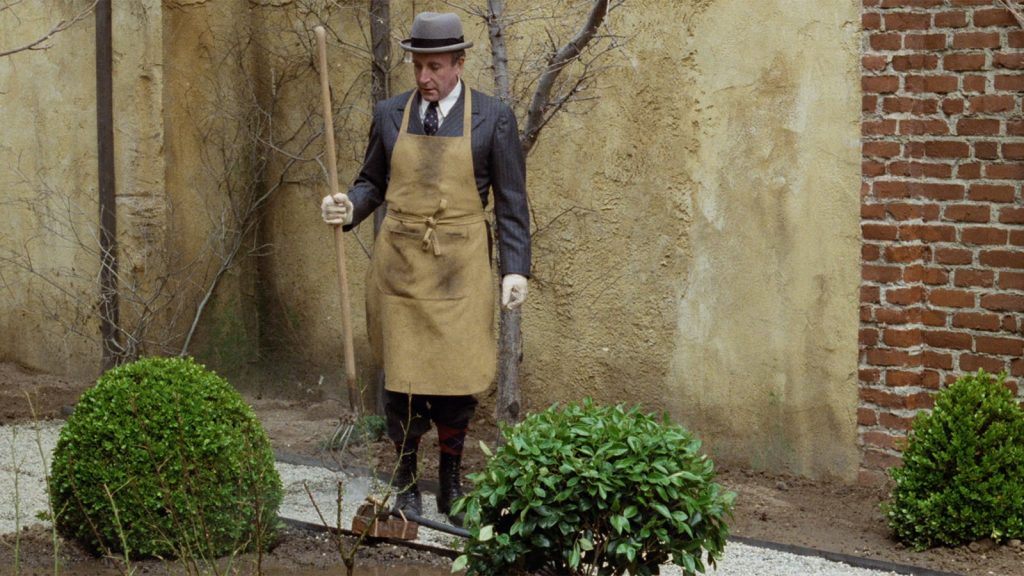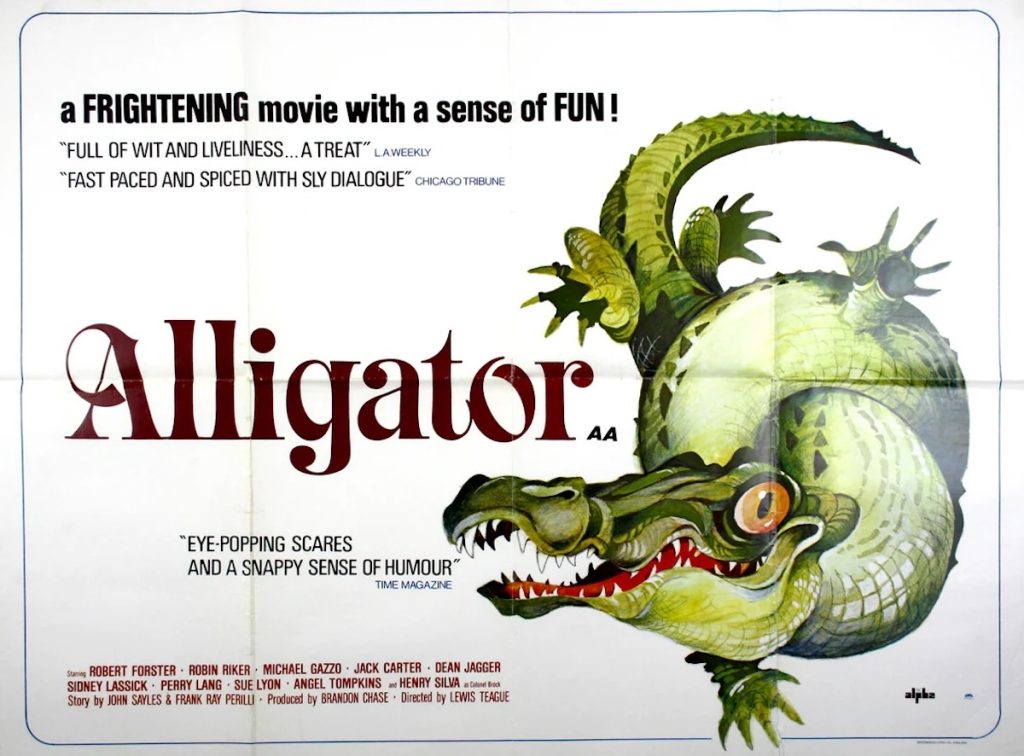Though it’s practically a cliche now, there was a time when a comedian making the leap to a dramatic role could still be considered a risky move. In the late ‘70s, though, making a movie of any kind with Peter Sellers was considered risky after a string of box office failures. It took him almost nine years to get an adaptation of Jerzy Kosinski’s 1971 novel Being There off the ground, including multiple appeals to the author himself. But his persistence paid off. When the film was finally released in 1979, it garnered Sellers a nomination for Best Actor at the Academy Awards. He died just seven months later. It remains one of his most fascinating performances in a career with no shortage of them.
Like the book, the film follows Chance, who has spent his entire life inside the house of a wealthy old man. The opening sequence takes us through his morning routine, which involves being woken by the television. He tends to the garden, is fed by the maid Louise, and tends to the garden some more. The television is omnipresent throughout; no matter what room he’s in, there’s usually a set nearby and it’s usually turned on. Chance’s interest in programming is blandly egalitarian. He flips through channels at random, with little more than a gentle smile on his face. Occasionally he imitates a gesture he sees or picks up a phrase he hears.
But his life is about to change considerably: Louise informs him the old man has passed away. After a visit from two attorneys in charge of the estate, who are nonplussed by his inexplicable presence, Chance is forced to leave the only place he’s ever known. Up until this point, director Hal Ashby hasn’t ventured beyond the confines of the old man’s house. When Chance steps outside for the first time to the strains of a disco version of Strauss’s “Also sprach Zarathustra”, the hermetic seal of the film is broken as well. The world is far different from the one he’s seen on television, though: the old man’s house is in a run-down urban D.C. neighborhood full of empty lots, garbage, and homeless people. When Chance asks for help, he’s met with rejection and ridicule, and even threatened with a switchblade.
This is not a cautionary tale of Chance falling into abject poverty, though. He is soon rescued, in a sense, when he’s injured by a car owned by Eve Rand (a delightfully game Shirley MacClaine). He’s spirited off to the palatial mansion she shares with her much older husband Ben (Melvyn Douglas, in an Oscar-winning performance) who is dying of a rare blood disorder. Ben was once a self-proclaimed political kingmaker and still wields considerable influence in Washington. He’s also clearly a man used to being told what he wants to hear and is charmed by Chance’s platitudes about gardening and the passing of the seasons. Soon enough, Ben is inviting him to sit down with the President, who later quotes him on television, setting off a race in the press to figure out who exactly this Chauncey Gardiner, as he’s mistakenly “rebranded,” is.

In an era when our country’s current leader listens to Fox News hosts and online influencers rather than experts, this all might sound a bit quaint. But that’s also part of its considerable appeal. At a time when straight talk sounds a lot like sycophancy, there’s something to be said for a man with a knack for metaphor. “Goobledygook,” Louise declares when she sees Chance’s appearance on a Dick Cavett-like talk show. But it’s his blankness that allows people to read whatever they want into him, and that includes viewers seeking to make a symbol out of his simplicity.
It’s a monumental task for Sellers, who’s in almost every scene and must maintain a steady temperament throughout. A lesser actor, one lacking in the confidence to keep the audience’s attention, might adopt physical tics or a halting voice to convey Chance’s mental deficiencies. But ironically it takes a great intelligence and humility to play a fool, and Sellers’s performance is a model of control. Unsurprisingly for an actor who fought so hard for a role, he threw himself into the preparation for Being There, working alone with a tape recorder to perfect his unmodulated delivery. During filming, he reportedly refused most interviews and kept his distance from the rest of the cast (MacClaine, for her part, called him “a dream” to work with).
It would not be Sellers’s final film – that honor dubiously goes to The Fiendish Plot of Dr. Fu Manchu. But it epitomizes what his biographer Ed Sikov called his gift of “playing men who have no idea how ridiculous they are.” There’s a dignity to Chance that transcends his mundane surroundings but also leaves him at an impossible remove from them. Ashby didn’t come up with the closing image of Being There until well into production, but it’s a perfect gracenote to the mysteries of Chance’s existence. What is happening in that final moment? And how is it happening? The answers don’t matter because Chance would never think to ask the questions.
“Being There” is available for digital rental or purchase, and is available on Blu-ray from the Criterion Collection.



